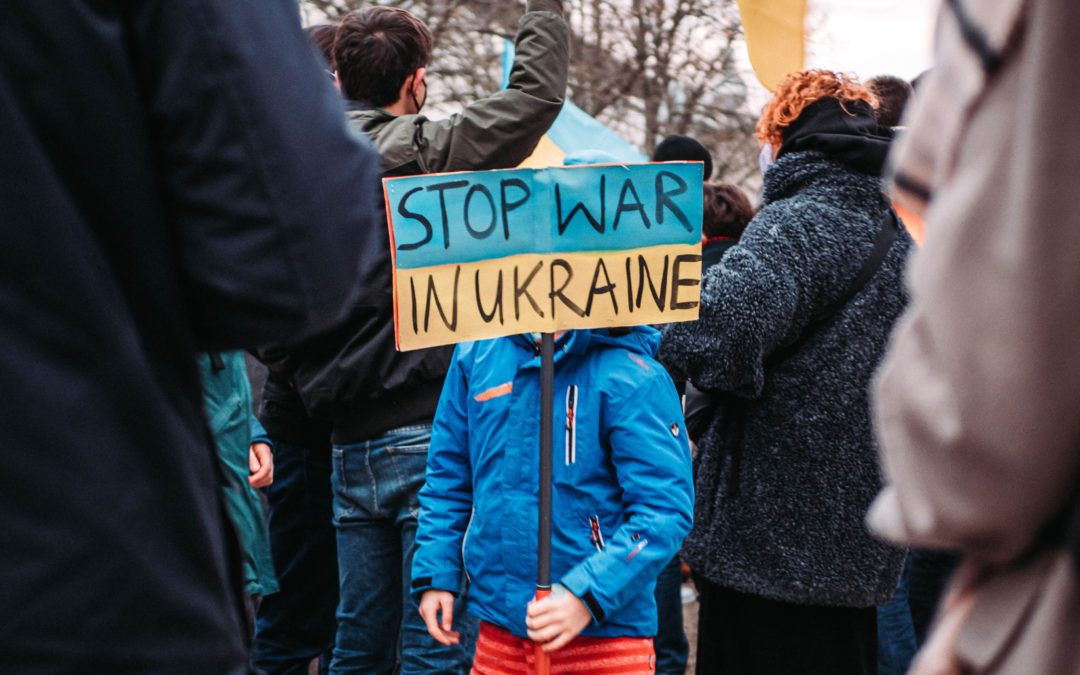I want to first acknowledge the gratitude that we can all hopefully feel for the life that we have. Before you read further, stop and think about all of the things in your life today for which you can experience gratitude.
I also do not want anyone to get the impression that I am comparing the stress that any of us in the United States or in other countries (not in harm’s way) are experiencing in comparison to what it is like to be living in Ukraine or other countries in this region, including Russia. Unless you have lived in a war zone, you have very little idea of how terrifying and soul-crushing this experience can be.
For those of us who are observing what is happening from the safety of our lives far away, we experience a different kind of stress.
The news out of Ukraine just does not seem to be getting any better these days; in some ways, it seems to be getting worse. Images of the war are ever present on the evening news or on our newsfeed on our Smartphones. We see the impacts of the fighting on soldiers but also on ordinary citizens who are being killed as they try to go about their daily lives. We feel powerless to do anything and overwhelmed by this tragedy halfway around the world.
Some of us have family in this region. Others of us have friends who are focused on simply surviving. Many of us may have no personal connections to people in these areas but we are nonetheless impacted by the very human impact this is having on ordinary people to whom we can relate. What would it be like to try to simply exist while living in a war zone? None of us can truly know unless we have experienced this. Hopefully, we never will.
I am constantly talking with clients about the stress that the war in Ukraine is causing them. Many people are finding themselves feeling more emotional in general. Some people find themselves distracted during the day by notifications and the latest horror that has taken place. These reactions are also built upon the shared cultural stress that we all feel as we enter year three of the pandemic. What can you do to manage your reactions to these unfolding events? I thought that I would offer my two cents (or twenty-five) for ways to best manage your war-related stress:
- Limit news consumption. Some people feel as if they must be up to date on everything that is happening in Ukraine up to the minute. Many people feel as if they are being disloyal by not staying on top of information. Some people may have family in the region and do need to stay this updated on events. However, most of us do not need this level of detail. Turn off news notifications on your computer or smartphone. Choose when and how you consume information about what is happening. Limit your news consumption in the way that works best for you.
- Focus on what you can control. When life feels out of control, people benefit from focusing on things that help them feel a sense of mastery. A good friend of mine in graduate school would vacuum her living room when she felt out of control. After chasing all the dust bunnies out of her carpet, she could stand back to see the results of her labor and the nice, neat lines in the carpet. Vacuuming might not be your thing. Maybe it is balancing your checkbook. It could be organizing a drawer in your desk. Find something that you can do immediately with concrete results that gives you back a sense of control.
- Donate: There are many charities that are providing support to people in Ukraine as well as to refugees who are displaced to other countries. If you choose to do so, you should be sure to find a reputable charity.
- Accept: True acceptance in the Buddhist sense is “acknowledging what is.” This does not mean that we must like or agree with whatever is happening. I hear many people who are frustrated about gas prices or other articles whose price is going up. Whenever you fill up your gas tank, use skills of acceptance.
- Exercise…and I don’t mean good judgment. As my physical therapist once said to me, “Motion is lotion. It is good for the joints and helps the healing process.” This is also true emotionally. Moving our bodies can literally help us move our minds to a place away from rumination to a place of acceptance and gratitude.
No one knows how long this crisis will continue. No one knows where it will end up either. However, what we do know is that we have today in front of us. Hopefully, these ideas will help you make the most of it.
Be well.

